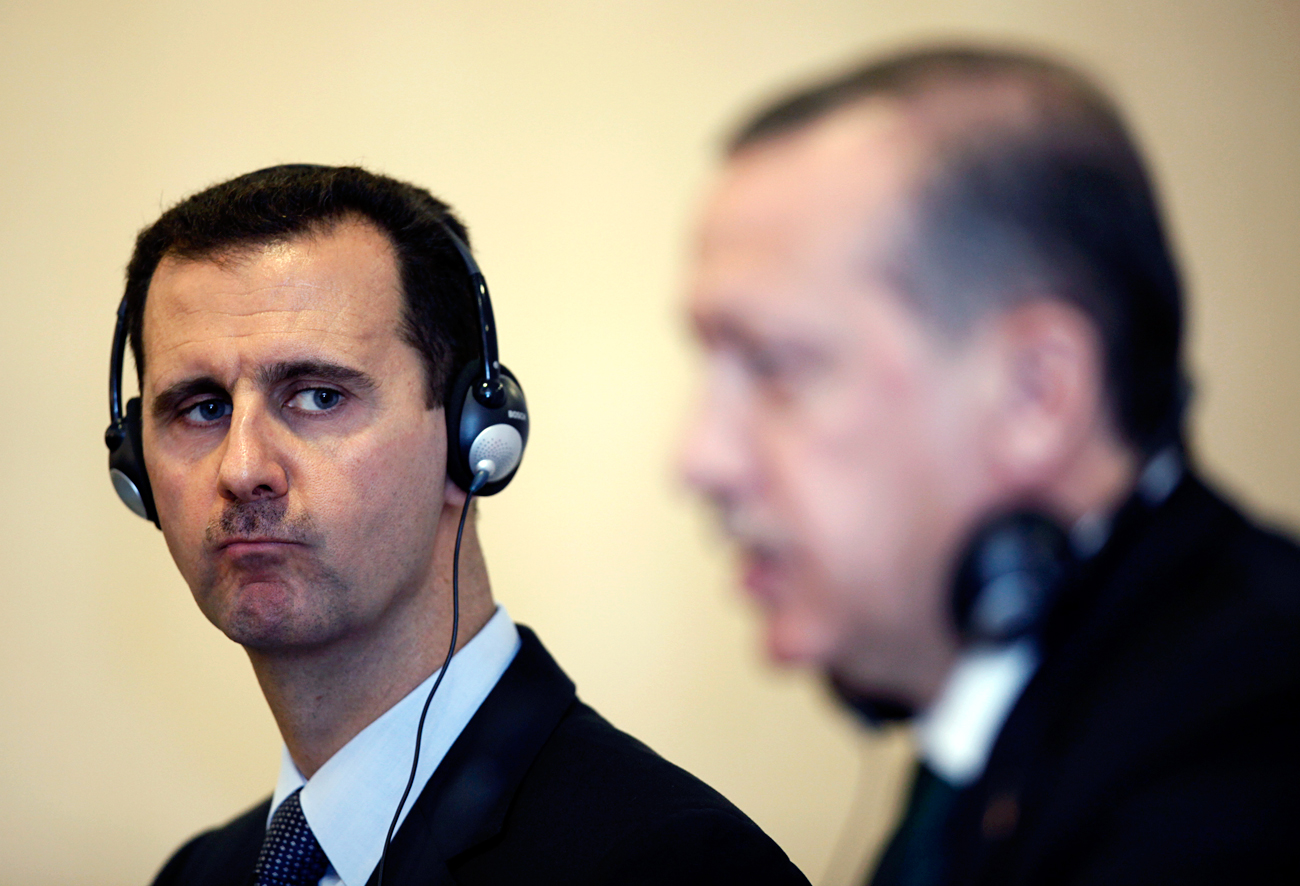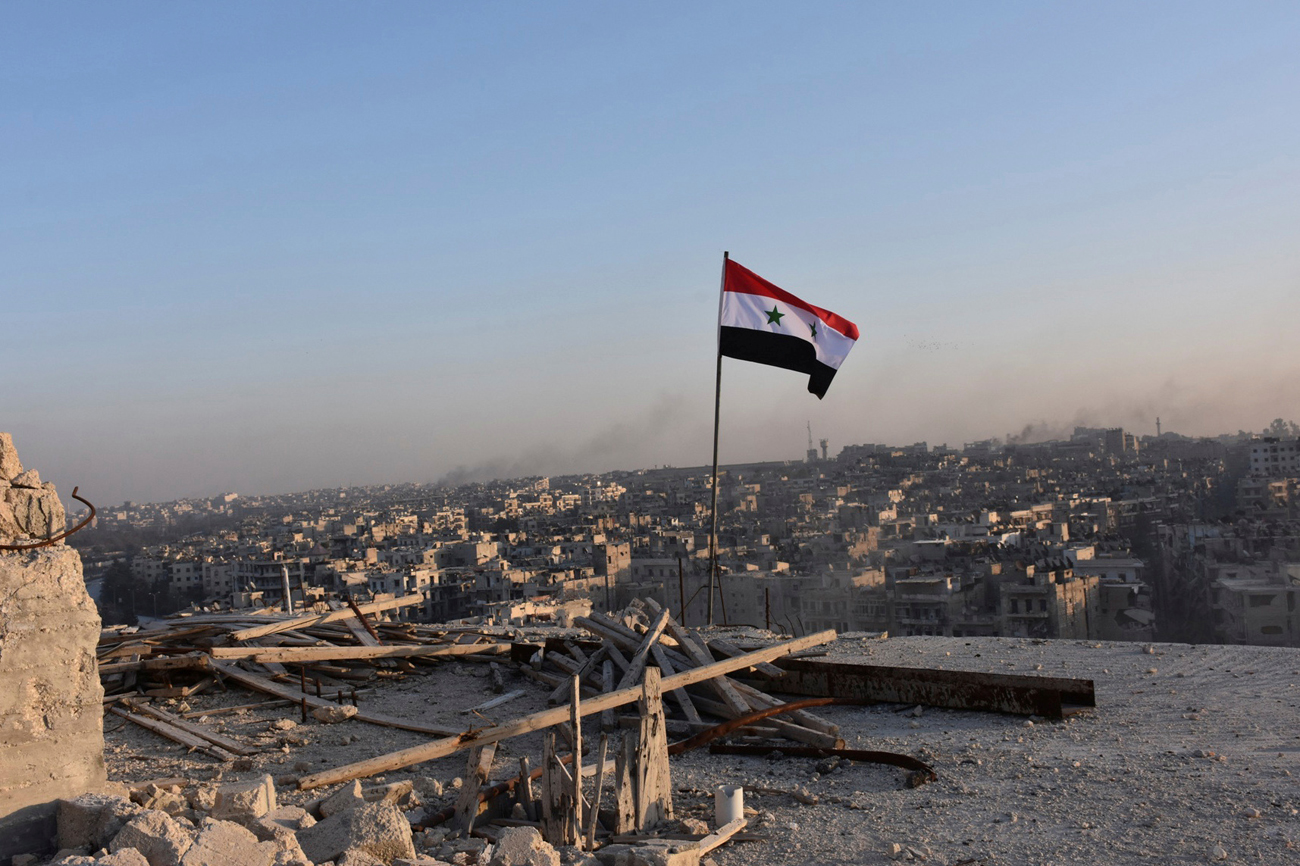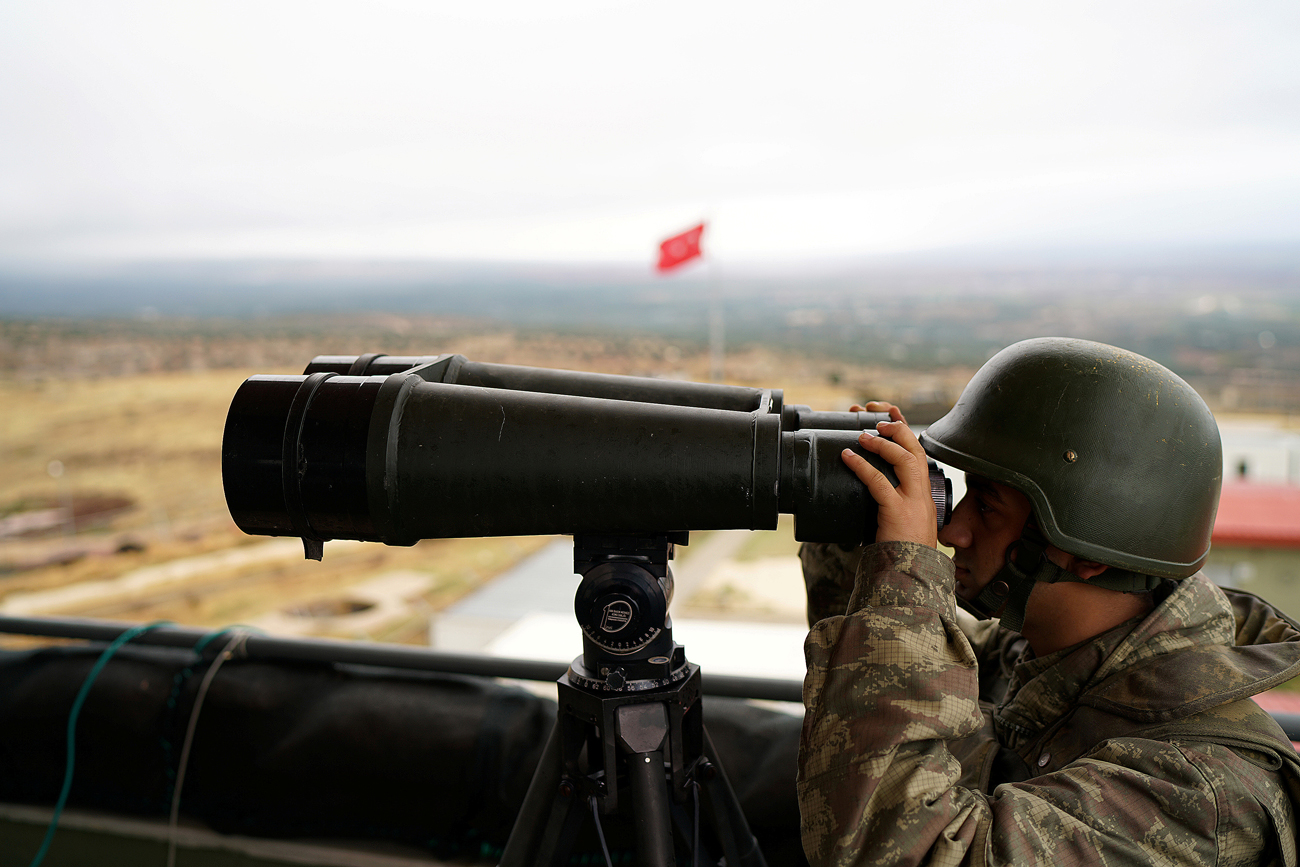Has Erdogan put Russia relations at risk with vow to topple ‘tyrant’ Assad?

Turkey's Prime Minister Tayyip Erdogan (right) and Syria's President Bashar al-Assad attend a news conference after their meeting in Istanbul, June 7, 2010.
ReutersTurkish President Recep Tayyip Erdogan has unexpectedly announced that Turkey is seeking to directly overthrow Syrian President Bashar al-Assad.
"We've come to Syria [Turkish troops have been in northern Syria since August 2016 – RBTH] in order to end the rule of cruel tyrant Bashar Assad, who has created state terror in the country," said Erdogan, speaking at a scientific symposium in Istanbul on Nov. 29.
While on Nov. 30 Erdogan's administration moved to clarify that the president's words should not be taken literally, they have already engendered a reaction from Moscow.
The Turkish leader's statement seems particularly provocative considering the fact that one of Assad's main allies is Russia. Relations between Turkey and Russia are still in the process of being mended after the incident that took place on Nov. 24, 2015, in which Turkey shot down a Russian Su-24 plane along the Syrian border. So a new clash over Syria is a potentially alarming prospect.
Reaction to the soldiers' death
Despite his opposition to the Syrian regime, this was the first time that Erdogan has spoken openly about fighting Assad – earlier, he would always stress that Turkey is fighting Islamic State (ISIS) in Syria.
Yury Mavashev, director of the political department at the Institute of Modern Turkey Studies, believes that Erdogan's unexpected verbal attack could have been a response to the recent death of three Turkish soldiers in northern Syria. They were reportedly shelled by the Syrian government army.
The Turkish soldiers were shelled near the city of al-Bab in northern Syria on Nov. 24, on the anniversary of the downing of the Russian Su-24 plane in 2015. Russia denies involvement in the incident while Damascus has not made any comments. According to Mavashev, Turkey is accusing Syria of killing the soldiers and this is precisely what Erdogan's statement is related to.
“Erdogan cannot be silent about this incident in front of his supporters. He wants to assuage them, tell them that everything is going as planned, that Turkey will not cede its position in Syria," he said.
Belligerent rhetoric and a ‘nervous breakdown’
Russian observers offer other theories on why the Turkish president spoke about overthrowing Assad. Vladimir Avatkov, director of the Center for Middle East Studies, notes that with his belligerent rhetoric Erdogan is trying to unite his entourage around him and at the same time put pressure on Assad's allies: Russia and Iran. According to Avatkov, Erdogan wants to push these countries to make concessions on Syria.
Viktor Nadein-Rayevsky, a Turkey scholar and leading scientific collaborator at the Russian Academy of Sciences’ Institute of World Economy and International Relations said: "I would call this statement Erdogan's nervous breakdown. It was a purely emotional statement. He is an impulsive man."
In Nadein-Rayevsky's opinion, Erdogan could have been upset by the Syrian army's recent success in Aleppo, where Turkey's militia allies are suffering losses.
Will Turkey fight Syria?
Vladimir Avatkov remarks that Erdogan constantly criticized Assad even before his Nov. 29 statement: "From the very beginning of the conflict Turkey spoke in favor of changing the regime in Syria. Turkey was one of the first countries that said that Assad is a dictator and must resign."
For this reason, Erdogan's statement does not contradict his traditional policy, especially since now the Syrian and Turkish armies stand in dangerous proximity to one another in northern Syria.
At the same time, Yury Mavashev doubts that Syria and Turkey will engage in a full-fledged war, pointing out that Damascus “does not have the necessary power” to get involved in a war with such a “serious opponent” as the Turkish army.
“But Turkey will also not fight simultaneously with ISIS, the Kurds and Damascus," added Mavashev. In his view, local clashes are possible, but not an outright war.
Russia's reaction
Russian officials have reacted with restraint to Erdogan's words. Foreign Ministry Spokeswoman Maria Zakharova stressed that the statement did not have a public character and refrained from making any comments.
Russian Presidential Press Secretary Dmitry Peskov admitted that the "serious" statement had "become news," saying that further discussion is needed. However, he refrained from criticism, noting that Putin and Erdogan are "in very intense and trustworthy contact."
Turkey scholars say that there is a certain agreement on Syria between Russia and Turkey. Russia is supporting Assad around Aleppo while Turkey is fighting ISIS and the Kurds near its borders, and the two countries are trying not to intrude into each other's "areas of responsibility."
"Erdogan will not go beyond the agreement, although such a desire can be noted," said Viktor Nadein-Rayevsky, specifying that the Turkish leader's behavior is sometimes difficult to predict.
In Yury Mavashev's opinion, Moscow will try to refrain from drastic statements and actions concerning Damascus and Ankara's quarrel: "Russia will preserve its external neutrality, giving preference to backstage negotiations with both sides,” he said.
Subscribe to get the hand picked best stories every week
All rights reserved by Rossiyskaya Gazeta.
Subscribe
to our newsletter!
Get the week's best stories straight to your inbox

